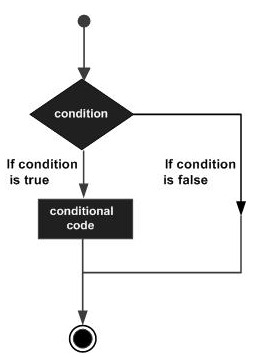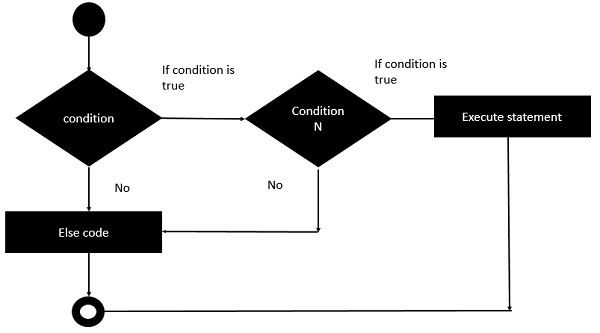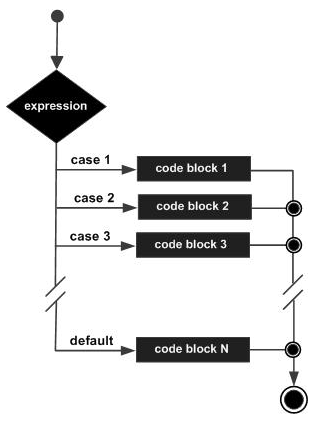📅 最后修改于: 2020-11-02 03:59:27 🧑 作者: Mango
决策结构要求程序员指定一个或多个要由程序评估或测试的条件。
下图显示了大多数编程语言中常见的典型决策结构的一般形式。

还有如果确定条件为真要执行的语句或语句,以及可选,如果确定的条件为假执行其它语句。
让我们看一下Rexx中可用的各种决策声明。
| Sr.No. | Statement & Description |
|---|---|
| 1 | If statement
The first decision-making statement is the if statement. An if statement consists of a Boolean expression followed by one or more statements. |
| 2 | If-else statement
The next decision-making statement is the if-else statement. An if statement can be followed by an optional else statement, which executes when the Boolean expression is false. |
嵌套If语句
有时,需要将多个if语句彼此嵌入,这在其他编程语言中也是可能的。在Rexx中,这也是可能的。
句法
if (condition1) then
do
#statement1
end
else
if (condition2) then
do
#statement2
end
流程图
嵌套if语句的流程图如下-

让我们以嵌套的if语句为例-
例
/* Main program */
i = 50
if (i < 10) then
do
say "i is less than 10"
end
else
if (i < 7) then
do
say "i is less than 7"
end
else
do
say "i is greater than 10"
end
上面程序的输出将是-
i is greater than 10
选择陈述
Rexx提供了select语句,该语句可用于基于select语句的输出执行表达式。
句法
该语句的一般形式是-
select
when (condition#1) then
statement#1
when (condition#2) then
statement#2
otherwise
defaultstatement
end
该语句的一般工作如下-
-
select语句具有一系列when语句,用于评估不同的条件。
-
每个when子句具有不同的条件,需要评估该条件,然后执行后续语句。
-
如果先前的when条件未评估为true ,则else语句用于运行任何默认语句。
流程图
select语句的流程图如下

以下程序是Rexx中case语句的示例。
例
/* Main program */
i = 50
select
when(i <= 5) then
say "i is less than 5"
when(i <= 10) then
say "i is less than 10"
otherwise
say "i is greater than 10"
end
上述程序的输出将是-
i is greater than 10